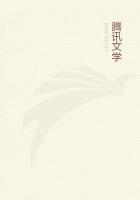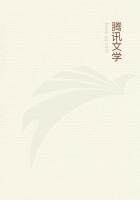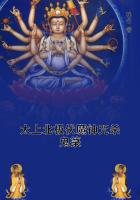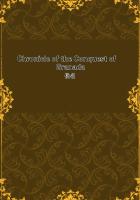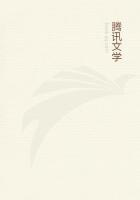This time he was more cautious. He offered peace, but the allies insisted upon war. The whole of Europe arose against the "perfidious Corsican." Rapidly the Emperor marched northward that he might crush his enemies before they should be able to unite their forces. But Napoleon was no longer his old self. He felt sick. He got tired easily. He slept when he ought to have been up directing the attack of his advance- guard. Besides, he missed many of his faithful old generals.
They were dead.
Early in June his armies entered Belgium. On the 16th of that month he defeated the Prussians under Blucher. But a subordinate commander failed to destroy the retreating army as he had been ordered to do.
Two days later, Napoleon met Wellington near Waterloo.
It was the 18th of June, a Sunday. At two o'clock of the afternoon, the battle seemed won for the French. At three a speck of dust appeared upon the eastern horizon. Napoleon believed that this meant the approach of his own cavalry who would now turn the English defeat into a rout. At four o'clock he knew better. Cursing and swearing, old Blucher drove his deathly tired troops into the heart of the fray. The shock broke the ranks of the guards. Napoleon had no further reserves.
He told his men to save themselves as best they could, and he fled.
For a second time, he abdicated in favor of his son. Just one hundred days after his escape from Elba, he was ****** for the coast. He intended to go to America. In the year 1803, for a mere song, he had sold the French colony of Louisiana (which was in great danger of being captured by the English) to the young American Republic. "The Americans," so he said, "will be grateful and will give me a little bit of land and a house where I may spend the last days of my life in peace and quiet." But the English fleet was watching all French harbours. Caught between the armies of the Allies and the ships of the British, Napoleon had no choice. The Prussians intended to shoot him. The English might be more generous. At Rochefort he waited in the hope that something might turn up. One month after Waterloo, he received orders from the new French government to leave French soil inside of twenty-four hours. Always the tragedian, he wrote a letter to the Prince Regent of England (George IV, the king, was in an insane asylum) informing His Royal Highness of his intention to "throw himself upon the mercy of his enemies and like Themistocles, to look for a welcome at the fireside of his foes . . .
On the 15th of July he went on board the "Bellerophon," and surrendered his sword to Admiral Hotham. At Plymouth he was transferred to the "Northumberland" which carried him to St. Helena. There he spent the last seven years of his life. He tried to write his memoirs, he quarrelled with his keepers and he dreamed of past times. Curiously enough he returned (at least in his imagination) to his original point of departure. He remembered the days when he had fought the battles of the Revolution. He tried to convince himself that he had always been the true friend of those great principles of "Liberty, Fraternity and Equality" which the ragged soldiers of the convention had carried to the ends of the earth. He liked to dwell upon his career as Commander-in-Chief and Consul. He rarely spoke of the Empire. Sometimes he thought of his son, the Duke of Reichstadt, the little eagle, who lived in Vienna, where he was treated as a "poor relation" by his young Habsburg cousins, whose fathers had trembled at the very mention of the name of Him. When the end came, he was leading his troops to victory. He ordered Ney to attack with the guards. Then he died.
But if you want an explanation of this strange career, if you really wish to know how one man could possibly rule so many people for so many years by the sheer force of his will, do not read the books that have been written about him. Their authors either hated the Emperor or loved him. You will learn many facts, but it is more important to "feel history" than to know it. Don't read, but wait until you have a chance to hear a good artist sing the song called "The Two Grenadiers."
The words were written by Heine, the great German poet who lived through the Napoleonic era. The music was composed by Schumann, a German who saw the Emperor, the enemy of his country, whenever he came to visit his imperial father-in-law. The song therefore is the work of two men who had every reason to hate the tyrant.
Go and hear it. Then you will understand what a thousand volumes could not possibly tell you.

